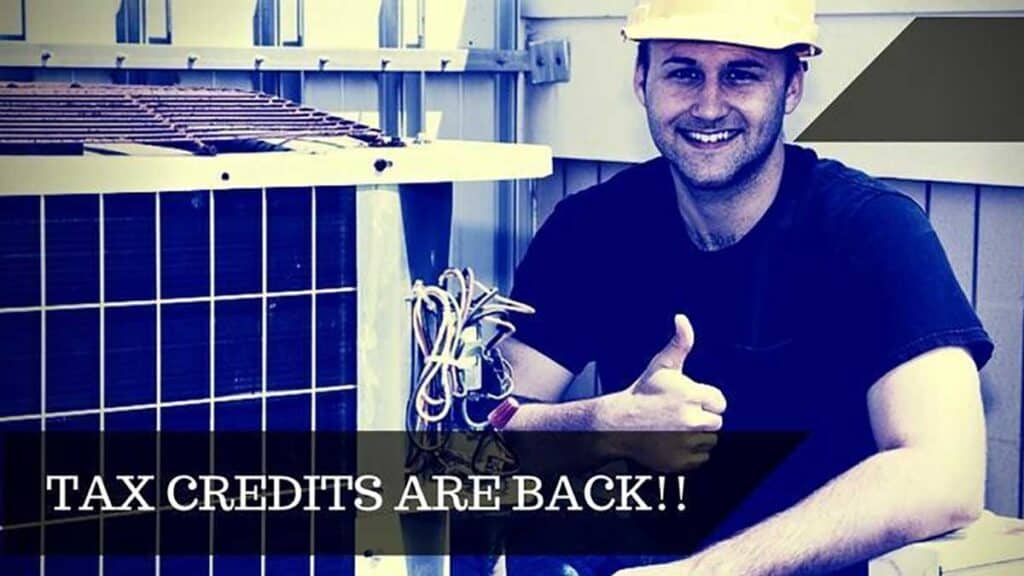If homeowners purchased a high-efficiency central air conditioner after January 1, 2016 or intend to do so before December 31, 2016, they are eligible for a new round of energy tax credits. The Consolidated Appropriations Act of 2016 retroactively extended 25C Residential Tax Credits that had previously expired at the close of 2014 through to the end of 2016. However, not all energy-efficient systems are created equal. The new Federal tax guidelines for these energy credits have a number of requirements and implications that homeowners must consider.
These include:
- Efficiency must exceed certain levels –Split residential systems must have a Seasonal Energy Efficiency Ratio (SEER) greater than or equal to 16 and an Energy Efficiency Ratio (EER) greater than or equal to 13. Package systems must have a SEER greater than or equal to 14 and an EER greater than or equal to 12. The total value of these tax credits is $300.
- Your system must officially qualify – To claim these tax credits, request that your HVAC contractor provide the Manufacturer Certification Statement in order to confirm your eligibility. This statement is a signed document from the manufacturer certifying that the system or component qualifies to receive the energy tax credit. You may also search the Air Conditioning Heating and Refrigeration Institute’s database for systems that qualify. Be sure to check the box for ‘Yes’ beside the ‘Eligible for Tax Federal Tax Credit.’
- The IRS loves forms – You’ll be required to complete IRS Form 5695 to claim your credits. Make sure to keep your receipts and manufacturer’s certification handy during the process.
- Timing of upgrade dictates when the credit is received – HVAC improvements made during 2015 will need to be claimed on your 2015 taxes filed by April 18, 2016. Equipment upgrades made in 2016 will need to be claimed on 2016 tax filings that must be completed before April 2017.
- Lifetime credit cap of $500 –If homeowners have claimed more than $500 in 25C tax credits since January 1, 2006, they may not qualify.
Qualifying for the tax credits isn’t that difficult if you work with a professional HVAC contractor who understands the needs and requirements of the IRS. Also, the long term returns garnered from a higher efficiency system helps reduce overall energy and maintenance costs. If you’re in the market and considering the purchase of a new system, now may be the time to take advantage of cost savings afforded through the extension of these tax credits. Call our team of HVAC professionals today to see what we can do to help you qualify.




